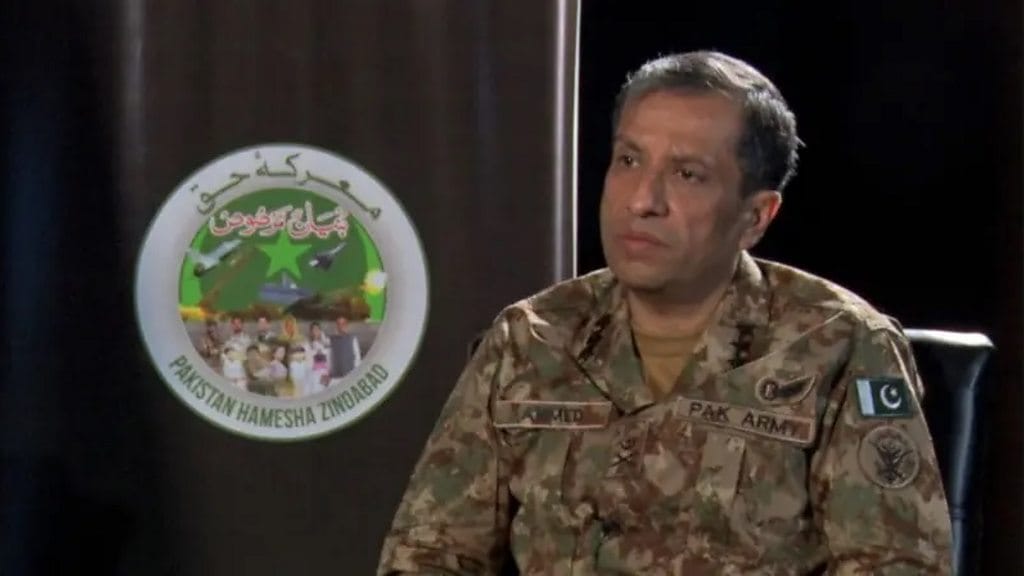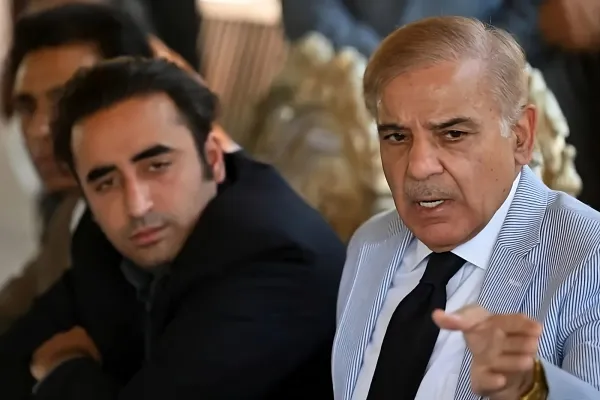Pakistan’s DG ISPR Outlines Robust Defense Strategy Amid Strained India Relations
Maj. Gen. Ahmed Sharif Chaudhry, DG ISPR, accuses India of risking regional stability with a discredited terrorism narrative. Pakistan’s measured response to recent clashes underscores its commitment to peace and defense. Read more on the evolving India-Pakistan tensions.

Islamabad — In a compelling interview with BBC Urdu, Major General Ahmed Sharif Chaudhry, Director General of Inter-Services Public Relations (DG ISPR), articulated Pakistan’s resolute stance on its tense relationship with India, addressing recent military engagements, the specter of nuclear conflict, and the nation’s unwavering commitment to peace paired with unyielding defense preparedness. Chaudhry’s remarks, delivered with strategic clarity, underscored Pakistan’s measured responses to India’s provocations while critiquing New Delhi’s aggressive posturing.
Defense and Diplomacy: Pakistan’s Dual Commitment
Maj. Gen. Chaudhry emphasized that the Pakistan Armed Forces’ primary mission is to safeguard national sovereignty and territorial integrity, leaving diplomatic engagements to political leadership. “Pakistan celebrates peace within its borders but remains ever-prepared for war,” Chaudhry declared, highlighting a strategic balance between fostering stability and maintaining robust defense capabilities. This stance reflects Pakistan’s pragmatic approach to navigating the volatile India-Pakistan dynamic.
India’s Posture: A Recipe for Regional Instability
Chaudhry sharply criticized India’s strategic mindset, describing it as characterized by “arrogance, overconfidence, and a blatant disregard for human rights and international conventions.” He argued that India’s unilateral approach and provocative rhetoric, particularly following an incident on May 10th, are driven by domestic political pressures rather than responsible leadership. “Such a mindset ensures conflict is always looming, with a spark ready to ignite at any moment,” Chaudhry warned, accusing India of exploiting terrorism narratives to justify aggression, a tactic he deemed globally discredited.
‘We are celebrating peace right now in Pakistan but we're always prepared for war’ DG ISPR#
Nuclear Conflict: An “Inconceivable” Folly
Addressing the catastrophic potential of military escalation between the two nuclear-armed neighbors, Maj. Gen. Chaudhry dismissed the notion as “sheer stupidity” and “absurd.” He cautioned that such a conflict would lead to “mutual annihilation,” underscoring the irrationality of India’s apparent efforts to create space for limited military engagements. Chaudhry urged skepticism toward India’s “false narrative on terrorism,” which he argued lacks international credibility and fuels regional tensions.
Measured Response to Recent Clashes
Reflecting on recent hostilities, Chaudhry detailed Pakistan’s response to Indian actions on the 6th and 7th of an unspecified month, describing it as “measured, mature, and escalatory-controlled.” Pakistan downed Indian aircraft and drones but exercised restraint, despite the capacity for greater force. Following alleged Indian missile strikes on Pakistani bases on the night of the 9th/10th, Pakistan executed a “calibrated and proportional” counteraction on the morning of the 10th. “This was a partial application of our conventional forces and technology, yet it proved highly effective,” Chaudhry noted, adding that India’s immediate call for dialogue signaled the success of Pakistan’s strategic restraint.
The Evolving Face of Warfare
Chaudhry highlighted the broadening spectrum of modern warfare, accusing India of employing “non-contact warfare,” “informational blitzes” through “fake propaganda,” and proxy tactics, alongside heavy exchanges along the Line of Control and Working Boundary. He condemned India’s alleged targeting of civilians, mosques, and children, accusing New Delhi of flouting international norms with impunity. “This arrogance expands the canvas of war, demanding Pakistan’s constant vigilance,” Chaudhry stated.
Refuting India’s Claims
Maj. Gen. Chaudhry categorically rejected India’s assertions of precision strikes on terrorist targets, particularly claims of sparing civilians. He cited media visits to sites like Balakot, Muridke, and Muzaffarabad on the morning of the 7th, which revealed “burnt Quran pages, destroyed mosques, and the tragic loss of women and children” in densely populated areas. “Where are the training camps India claims to have targeted?” Chaudhry questioned, urging the international community to view Indian claims “with a generous pinch of salt.”
India’s specific claim of targeting Jaish-e-Mohammed (JeM) headquarters in Bahawalpur and eliminating figures like Masood Azhar’s family members was dismissed as baseless. Chaudhry pointed to contradictory Indian statements, including an Indian High Commissioner’s claim on Sky News that Abdul Rauf Azhar was alive, as evidence of a “shelf-life expired narrative.” Photographic evidence of civilian casualties was presented to counter India’s assertions, reinforcing Pakistan’s demand for accountability.
Ceasefire and Global Mediation
Chaudhry clarified the ceasefire process, noting that India’s DGMO initiated contact after the 6th/7th attacks. Pakistan deferred talks until after its response on the 10th, after which India publicly signaled a desire to avoid escalation. “As a peace-loving nation, we were receptive,” Chaudhry said, crediting international interlocutors, particularly President Trump, for facilitating de-escalation.
Dismissing Pre-Strike Warnings
Maj. Gen. Chaudhry rejected India’s claim of providing prior warnings about its strikes as “amusing” media fabrication. “Pakistan’s armed forces rely on our own intelligence, not Indian notifications,” he asserted, emphasizing Pakistan’s “ever-vigilant and ever-ready” posture underpinned by comprehensive situational awareness.
A Call for Accountability
Chaudhry’s remarks position Pakistan as a nation committed to peace yet resolute in countering India’s perceived aggression. By challenging New Delhi’s narratives with evidence and demonstrating restraint in military responses, Pakistan seeks to foster stability in a region fraught with tension. As Maj. Gen. Chaudhry concluded, “Pakistan abhors terrorism in all its forms and demands credible evidence to act. India must meet us with transparency if peace is to prevail.”




